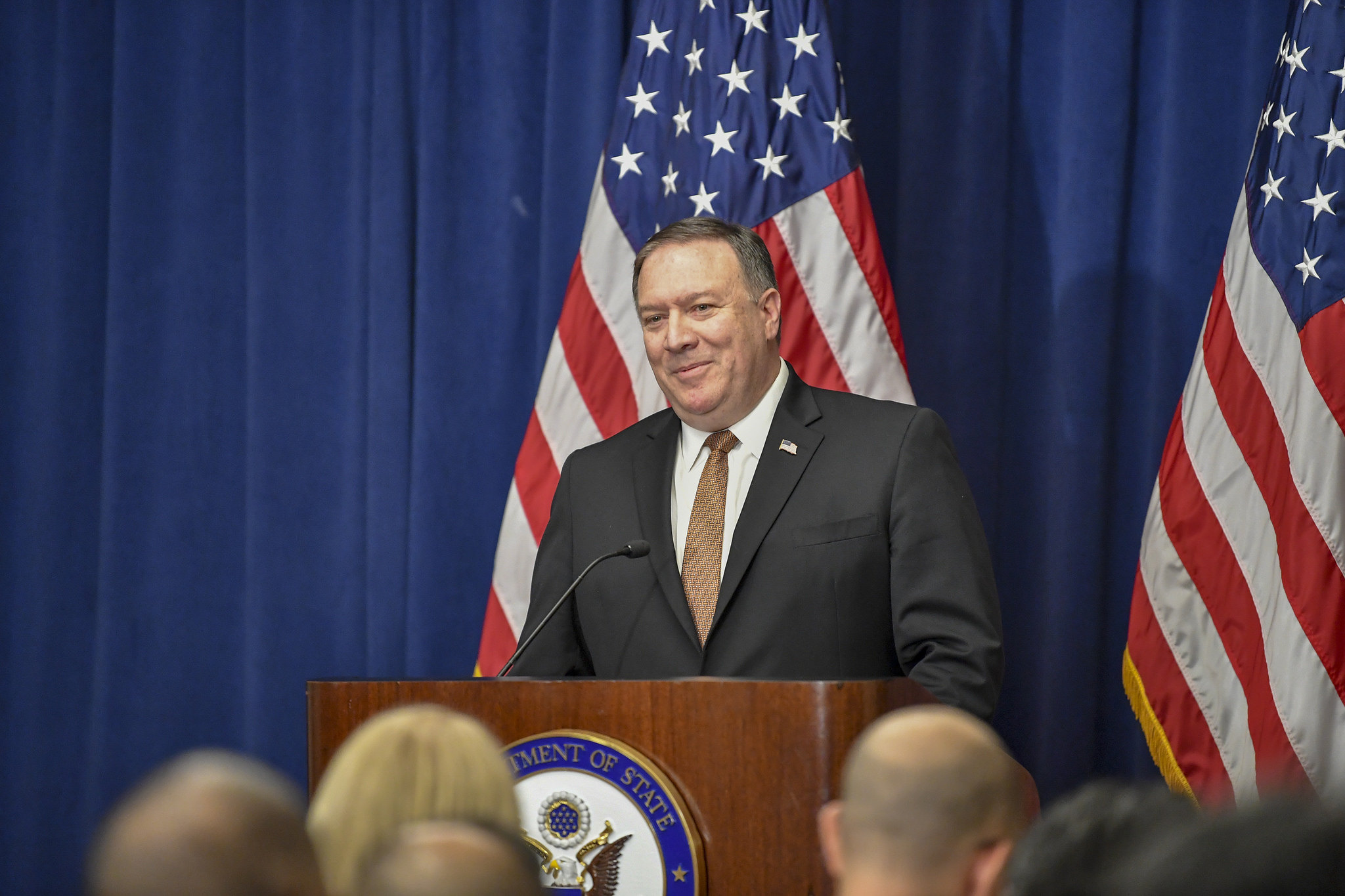State Department records shed light on Pompeo’s briefing with ‘faith-based media’ outlets

In response to a Reporters Committee lawsuit, the U.S. Department of State recently released the transcript of a controversial press briefing given by Secretary of State Mike Pompeo last March, during which Pompeo spoke exclusively with what the department called “faith-based media” organizations.
Despite the State Department’s description of the call as a briefing focused on “international religious freedom” with respect to the Middle East, the transcript reveals that Pompeo fielded a wide variety of questions on U.S. foreign policy in the region.
During the call — which took place shortly before Pompeo began a five-day trip to Beirut, Jerusalem and Kuwait City — the secretary of state described his department’s efforts to curb state funding of terrorism and weighed in on the ongoing conflict in Syria.
“We’re trying to make sure that we have a stable outcome as between the Turks and the forces in Syria along the Syrian-Turkish border,” Pompeo said, according to the transcript. “It’s an important political, diplomatic outcome. There’ll be a military component to that as well.”
As Religion News Service reported after participating in the call, the secretary of state also discussed the department’s decision to stop using the word “occupation” when referring to Israeli activities in the Golan Heights, the West Bank and Gaza.
The Citizens for Responsibility and Ethics in Washington also received records from the State Department after filing its own lawsuit. The organization reported on Jan. 17 that no Islam-focused news outlets appear to have participated in the call even though it touched on “radical Islamic terrorism.”
In addition to the transcript, the trove of over 200 pages of records released to the Reporters Committee over a period of several months included email correspondence between State Department officials in charge of organizing the briefing.
The exclusion of regular members of the State Department press corps at the briefing raised concerns among journalists and open government watchdogs at the time. In a March statement expressing those concerns, Reporters Committee Communications Director Jenn Topper said “the decision to bar reporters from attending a press briefing held only for ‘faith-based’ media on international religious freedom and to withhold the transcript of the discussion raises serious questions about the State Department’s understanding of — and commitment to — a free press.”
The day after Pompeo’s call with the approved reporters, the Reporters Committee filed a Freedom of Information Act request for transcripts or other records detailing the briefing. The request also sought emails inviting particular outlets and any records explaining the criteria for inclusion in the briefing.
After 120 days with no communication from the State Department, the Reporters Committee filed a federal lawsuit in July asking the U.S. District Court for the District of Columbia to order immediate release of the records. In response to the lawsuit, the State Department started sending documents to the Reporters Committee in September.
In the records provided, emails between State Department officials show that the department quickly became aware of the outrage sparked by the exclusive briefing. The records show that reporters from CNN, the Washington Post, Reuters and other mainstream media outlets had tried to RSVP after hearing about the briefing, though ultimately none of them were allowed on the call. In the days that followed, State Department employees can be seen sharing coverage of the ensuing controversy, and one email appears to describe how the story initially came to the attention of major news sources.
The email mentions that Jessica Donati of the Wall Street Journal was originally invited to join the call, but someone rescinded the invitation. Noting that it was unclear who made the decision, the email goes on to say that “Jessica stirred up the entire bullpen (State Dept. press corps) arguing there was some sort of collusion involved in the selection process.”
Parts of the exchange between Donati and staffers can be seen in additional documents released to the Reporters Committee. After receiving the message that her invitation was sent “in error,” Donati asks, “Why is it restricted to faith based media? We have been covering religious freedom at State as closely as any other outlet.”
The records also include an email between department staffers with the subject line “WSJ – Donati,” sent shortly before her invitation was rescinded. The entirety of that email’s body text is redacted.
An email exchange between two other State Department employees the day after the briefing shows further confusion related to Pompeo’s call, saying “at this point I have no insight to offer why they decided to conduct this engagement in this highly unusual manner.”
Read all of the records the Reporters Committee received in response to its lawsuit.
The Reporters Committee regularly files friend-of-the-court briefs and its attorneys represent journalists and news organizations pro bono in court cases that involve First Amendment freedoms, the newsgathering rights of journalists and access to public information. Stay up-to-date on our work by signing up for our monthly newsletter and following us on Twitter or Instagram.